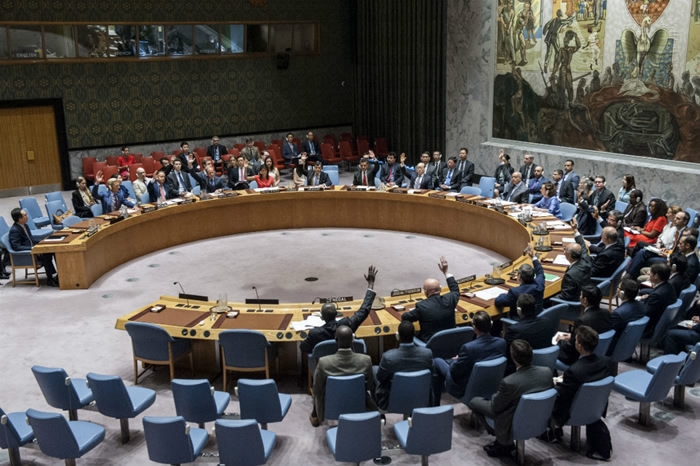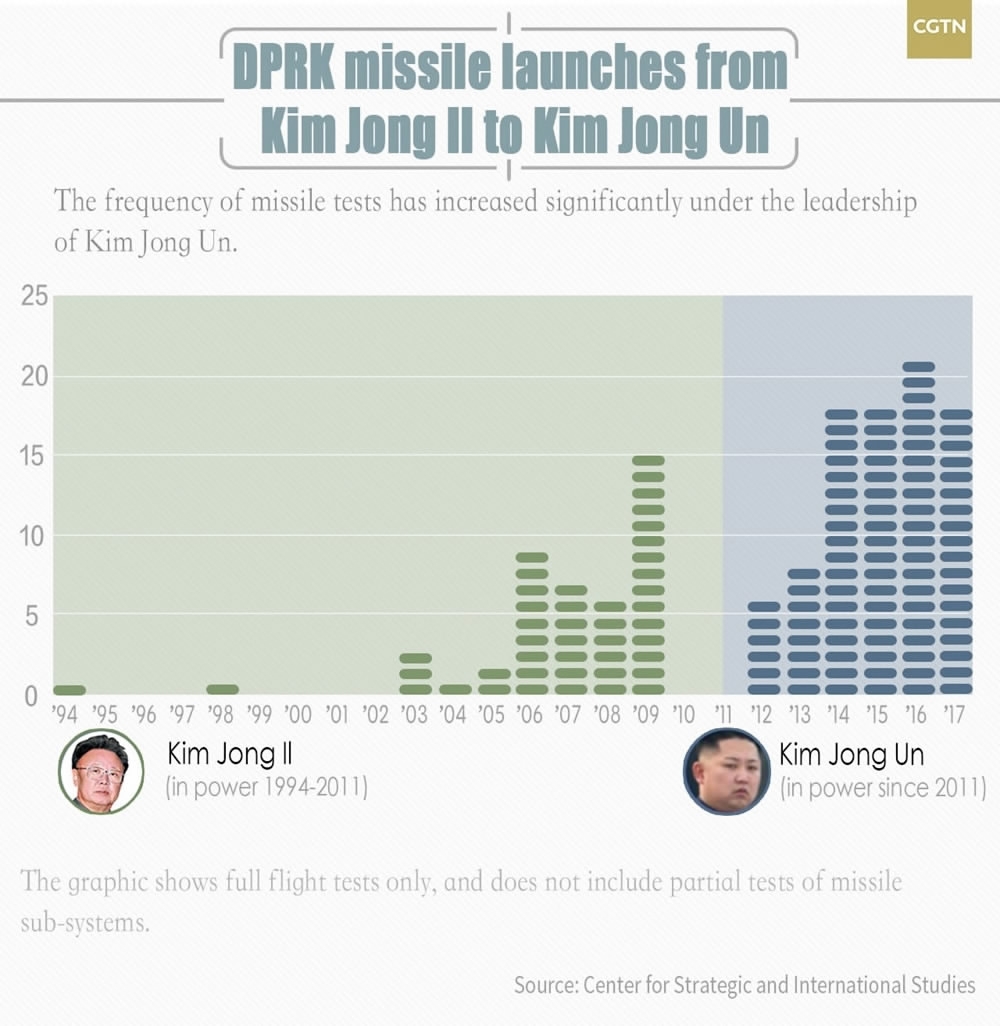The UN Security Council on Saturday unanimously adopted a US-drafted resolution that significantly strengthened sanctions on the DPRK, with a ban on exports aimed at depriving Pyongyang of 1 billion US dollars in annual revenue.
The resolution bans all exports of coal, iron and iron ore, lead and lead ore, as well as fish and seafood by the cash-starved state – stripping the DPRK of a third of its export earnings estimated at 3 billion US dollars per year.

The UN Security Council unanimously adopts a resolution on non-proliferation of nuclear weapons and the intercontinental ballistic missile program by the DPRK, August 5, 2017. /UN Photo
US Ambassador Nikki Haley told the council that the stiffer measures brought the penalty imposed on the DPRK "to a whole new level" and put leader Kim Jong Un "on notice."
China reiterates 'suspension-for-suspension' approach
China's Ambassador Liu Jieyi said the resolution showed that the world was "united in its position regarding the nuclear issue on the Korean Peninsula," but added that did not intend to negatively impact such non-military goods as food and humanitarian aid.
Calling on all parties to implement the resolution's provisions fully and earnestly, he recalled that China and Russia had issued a joint statement on July 4 and put forward a road map to resolve the issue through two parallel tracks – denuclearization and the establishment of a peace mechanism.
In their statement, China and Russia suggested that the DPRK announce the suspension of its nuclear and ballistic missile tests, while the US and South Korea suspend their large-scale joint military exercises. Relevant parties could then follow the dual-track approach of denuclearizing the peninsula on the one hand and establishing a peace mechanism on the other.
That plan, which was based on a "suspension-for-suspension" approach, was both realistic and feasible, Liu said.
Recalling that the US had recently indicated that it was not pushing for a "regime change" in the DPRK, Liu expressed hope that it would adhere to its promises not to push its troops through the 38th parallel north.
On the political front, it calls for the resumption of the Six-Party Talks and reiterated its support for the commitments set forth in the Joint Statement of September 19, 2005 issued by China, the DPRK, Japan, the Republic of Korea, Russia, and the United States.
The commitments included that the goal of the Six-Party Talks is the verifiable denuclearization of the Korean Peninsula in a peaceful manner, and that the United States and the DPRK respect each other's sovereignty and exist together peacefully.
Nine DPRK officials on sanctions blacklist
The resolution prevents the DPRK from increasing the number of workers it sends abroad whose earnings are another source of revenue for Kim's government.
It prohibits all new joint ventures with the DPRK, bans new investment in the current joint venture companies and adds nine DPRK officials and four entities including DPRK's main foreign exchange bank to the UN sanctions blacklist.

CGTN Graphic
The new raft of measures are the seventh set of UN sanctions imposed on the DPRK since it first carried out a nuclear test in 2006, but these have failed to compel Pyongyang to change its behavior.
The United States entered into negotiations with China a month ago on the new resolution after the DPRK launched its first intercontinental ballistic missile on July 4 which was followed by a second test on July 28.
But the measure does not provide for cuts to oil deliveries to the DPRK as initially proposed by the United States – a move that would have dealt a serious blow to the economy.

A US THAAD interceptor missile is launched during a successful intercept test. /Reuters Photo
China and Russia had resisted the US push for sanctions, arguing that dialogue with the DPRK was the way to persuade Pyongyang to halt its military programs.
(Source: AFP, UN)
Related stories:
UN to vote on new tougher DPRK sanctions










